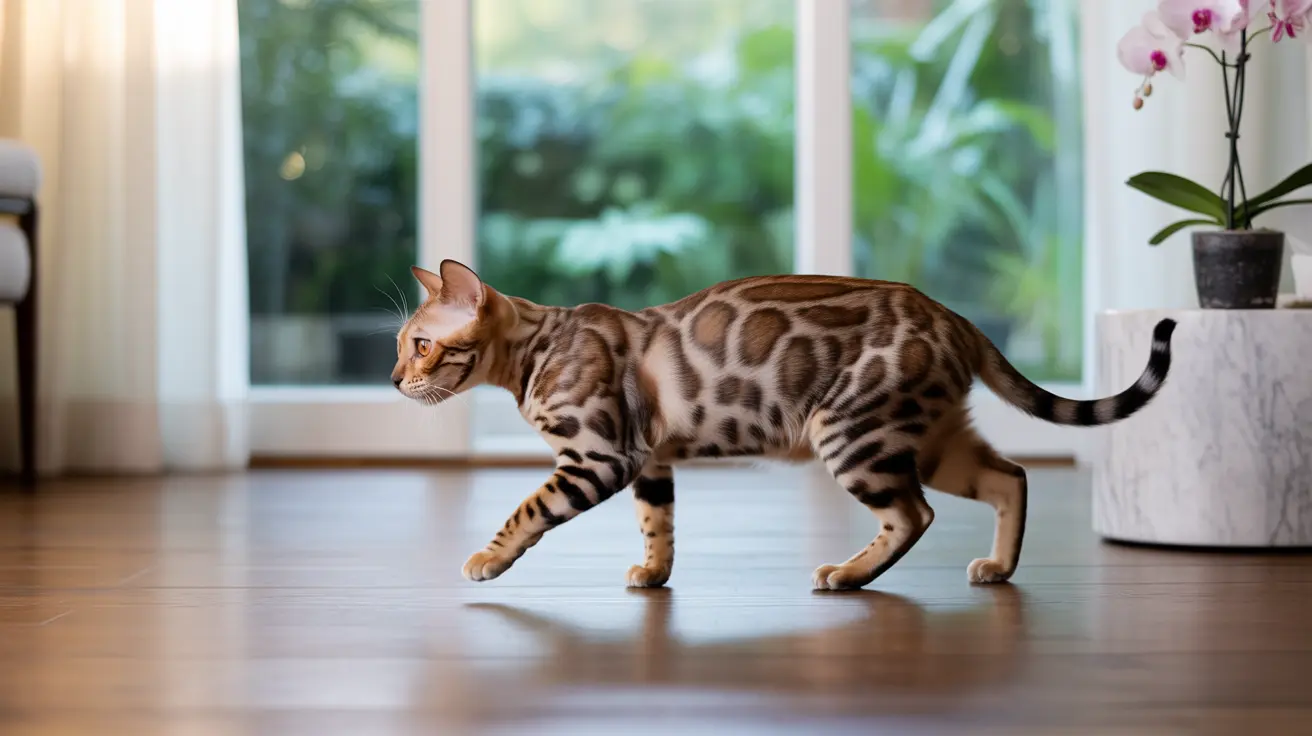Common Reasons for Cat Pacing
Stress and Anxiety
Cats are creatures of habit, and changes in their environment can trigger stress-related pacing. Whether it's moving to a new home, introducing a new pet, or even rearranging furniture, these changes can cause anxiety that manifests as repetitive walking behavior. Look for other signs of stress such as excessive grooming, hiding, or changes in appetite.
Boredom and Lack of Stimulation
Indoor cats, in particular, may pace due to insufficient mental and physical stimulation. Without adequate enrichment activities, cats can become restless and develop repetitive behaviors as a way to expend their energy. This is especially common in highly active breeds or younger cats who need more engagement.
Medical Conditions
Sometimes, pacing can indicate an underlying health issue. Conditions such as hyperthyroidism, pain from arthritis, or cognitive dysfunction in senior cats can all lead to increased restlessness and pacing. Additionally, cats may pace when experiencing digestive discomfort or other forms of physical distress.
Hormonal Influences and Reproductive Status
Unspayed females and unneutered males often exhibit pacing behavior during mating season. Female cats in heat may pace constantly while vocalizing, while male cats might pace near doors and windows in search of potential mates. Spaying or neutering typically resolves these hormone-driven behaviors.
Environmental Factors
Time of Day Patterns
Many cats become more active during dawn and dusk, their natural hunting times. This increased activity might appear as pacing behavior, especially if they're indoor cats without access to natural prey. Some cats may also pace at night, particularly if they're not getting enough activity during the day.
Territory and Resource Access
Cats might pace if they feel their territory is threatened or if they're having difficulty accessing important resources like food, water, or litter boxes. Ensuring these essential items are easily accessible can help reduce stress-related pacing.
Solutions and Prevention Strategies
Environmental Enrichment
Provide your cat with plenty of environmental stimulation:
- Interactive toys and puzzle feeders
- Climbing structures and scratching posts
- Window perches for bird watching
- Regular play sessions with their human family
Stress Reduction
Create a calm environment by:
- Maintaining consistent daily routines
- Using pheromone diffusers or sprays
- Providing quiet retreat spaces
- Minimizing unnecessary changes in the environment
Frequently Asked Questions
Why does my cat pace back and forth around the house?
Cats may pace due to various reasons including stress, boredom, medical conditions, or hormonal influences. Observing other behavioral changes and the context of the pacing can help identify the specific cause.
How can I tell if my cat's pacing is due to stress or a medical problem?
Look for accompanying symptoms: stress-related pacing often occurs alongside changes in eating habits or litter box use, while medical issues might include weight changes, excessive thirst, or visible discomfort. When in doubt, consult a veterinarian.
What are the signs that my cat's pacing is related to hormonal changes or being in heat?
Hormonal pacing is usually accompanied by loud vocalizations, increased affection, and attempts to escape outdoors. Female cats in heat may assume mating positions and exhibit restless behavior for several days.
When should I take my cat to the vet because of pacing and other unusual behaviors?
Seek veterinary care if pacing is sudden, excessive, or accompanied by other concerning symptoms like appetite changes, aggression, or signs of pain. Also consult a vet if the behavior persists despite attempting environmental enrichment.
What can I do to reduce my cat's pacing caused by boredom or anxiety?
Increase environmental enrichment through interactive play, provide climbing opportunities, and establish a consistent daily routine. Consider using calming aids like pheromone products, and ensure your cat has safe spaces to retreat when stressed.
Conclusion
While cat pacing can be concerning for pet owners, understanding its root causes is the first step toward addressing the behavior. Whether it's providing more enrichment, reducing stress, or seeking veterinary care, there are numerous ways to help your cat feel more comfortable and content in their environment.






